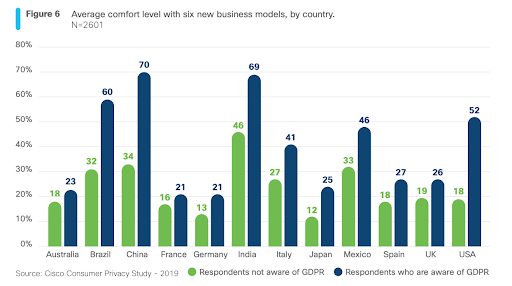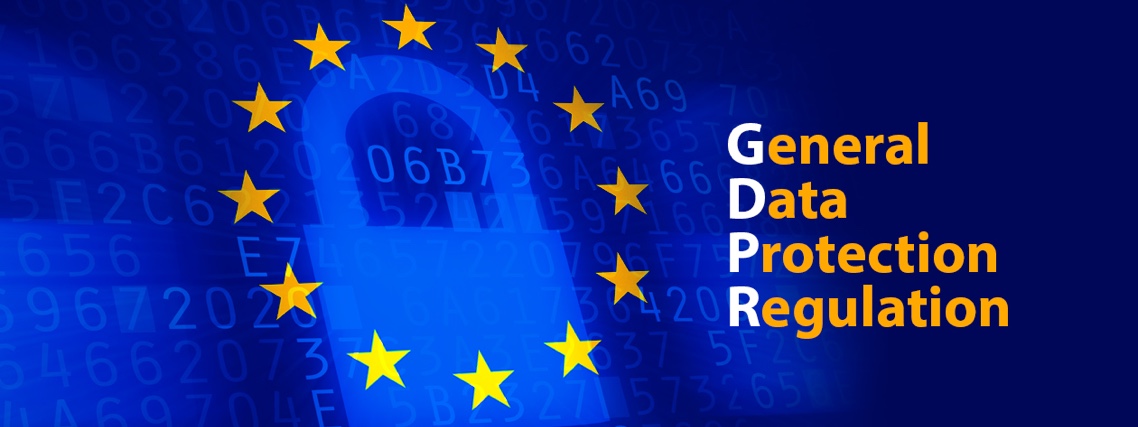It can be hard to get your head around data protection. There are a lot of rules and regulations out there and knowing where to start is a little daunting.
However, by reading this article, you’re already one step closer to creating some fantastic data protection policies within your startup—so congrats!
In this article, we’ll dive into what data protection can do for your startup and help you build a business case to win time and a budget to get your data protection in place.

Source
When does a startup need data protection?
In truth, from day one. It’s happened on far too many occasions that startups think they’re not big enough to be at risk from data leaks.
Founders, in early years, tend to think that passing around google sheets with their customer information is okay and that no one will notice. Wrong. They also tend to believe that their resources are best spent where they see a direct ROI, and that investors only want to focus on their earnings. Wrong again.
Set yourself up for success from day one. More importantly, avoid crises from day one. Introduce data protection processes as soon as you record that first email address. Start protecting your customers, business reputation, and more. When it comes to email, you should also use an SPF checker for resolving authentication issues if there are any
Let’s explore what data protection, CCPA, and GDPR mean for your startup.
5 Ways data protection can benefit your startup
There are five core ways that data protection can benefit your startup. If you’re looking to win over internal stakeholders and get this business effort approved then pick the points that will speak to them best and present them first.
1. Avoid fines and penalties
First up, and probably the one that gets the most attention, is the fines involved with breaking data protection laws. They do not come cheap. There’s also a big difference between CCPA vs GDPR laws, so it’s good to know the difference and how you can make sure your startup is sticking to them.
Lesser violations of CCPA can result in fines of up to 10 million euros or 2% of your startup’s worldwide annual revenue from the previous fiscal year. Larger violations of CCPA can result in fines of up to 20 million euros, or 4%— yup, we weren’t joking.
Violations of CCPA are nowhere near as steep but can still rock the boat depending on your startup’s size and funding. Unintentional violations of CCPA are $2,500, and intentional violations can hit $7,500 with 30 days to remedy the situation.
Either way, these fines are not something any new business wants to encounter, especially when you can avoid them by taking action early on. If you find that leadership, or even if you’re researching for your own startup, is more numbers orientated than anything else then start with these numbers at the top of your proposal to grab some attention.
2. Build trust and attract customers
A few consumer statistics for you to mull over. 88% of consumers say the extent to which they’re willing to share data with a company is dependent on their trust for that company. 48% of consumers have stopped buying from a company because of privacy concerns.
Trust and concern around how businesses use consumer data are massive today. What’s more, these statistics don’t just prove it’s a concern; they prove that people are willing to take action on them. Consider getting Phonexa numbers, for example, for a more secure customer support process.
If you’re hoping to attract customers and retain them, you need to showcase your handling data responsibly. Your customers need to know they can trust you with their information if you have any hope of them buying from you. One way to do this is to use the best hosting for eCommerce, which comes with several security features that will allow you to protect customer data.
Source
3. Attract investors
It doesn’t stop at customers, however. More and more investors are looking for data-sound businesses to put their money into. Cisco found that 97% of businesses have seen advantages like “investor appeal” from investing in privacy policies.
There are a few reasons for this—outside of our five key points in this article—:
- Data breaches are a lot more expensive for those businesses without security automation in place—95% higher.
- The average company receives $2.70 for every dollar spent on privacy efforts.
- Over 70% of companies say they’re more efficient, innovative, and agile from their privacy efforts.
All of these points are music to any investor’s ears.
Source
4. Build a more secure business
A hacker attack happens every 39 seconds. Besides the financial burden and the reputational damage a data hack can do to your business, you also need to consider the recovery time.
There’s a lot of work to do internally to recover from a data breach, and it needs to be considered alongside the amount of work you’ll put in in preparation for a potential breach.
In all, you’ll be building a more secure business for your processes, your employees, and your resources. To do so, you will need to use the best private browser for your online activities, as well as take other security measures, including using robust encryption protocols, updating software, and educating your staff about the latest cybersecurity threats and best practices. Say, for example, if you are a construction business, using construction document management software can help in securely managing and organizing sensitive documentation, enhancing overall security and compliance in your projects.
5. Protect and promote employer branding
75% of candidates will research a company inline before applying for a job opening. If you’re not building a strong employer brand from day one, you’re limiting the talent that will come knocking at your door.
Of course, there are many ways to build a strong employer brand: CSR initiatives, company benefits and culture, good press. Online coaching is yet another effective way to build a strong employee brand by demonstrating a commitment to employee development and growth. However, one of the best ways to build a brand reputation, even after your business rebranding, is with your biggest ambassadors, your employees.
With websites like Glassdoor and LinkedIn highlighting company reviews and personal experiences when working with a company, it’s so important that you build a business people want to talk about.
One of these topics you need to look after is, you guessed it, data.
If your employees see you’re building a business that’s sensitive toward data protection and privacy, including secure handling of a paystub and other sensitive information, you’ll build trust with them. You’ll show you’re not only a responsible business but also a respectful one. It promotes your brand ambassadors to be proud of the company they’re working for. In turn, people will start talking about you and attracting that talent your budding startup needs.
Build a responsible workforce
Hopefully, this article has highlighted the importance of CCPA, GDPR, and other data privacy laws that new businesses need to be aware of. With this newfound information and awareness, there’s one more thing left to do.
The last thing on your list is to build a workforce that is equally as aware as you are. This can come from the culture you’re building, the tools and resources you’re implementing, and the processes you’re putting in place. You’re onboarding a lot of change here, and it’s so important to use the best presentation tools out there to get your point across.
When presenting change to your business, try to include the why behind it, not just the how and when. Plus, the reason behind your actions needs to be larger than avoiding penalties. By giving legitimate and thoughtful reasons why you’re implementing data-aware change, your employees are more likely to adopt it and get behind you to make it happen.
Yes, there are laws around data protection. However, you’ll earn more respect from investors, employees, and customers alike if you implement data protection processes that are larger than these laws—because you care about the privacy of those you interact with.
It’s not an easy process to implement, however, with the help of some passionate minds it will do wonders for your business and this data-centric world we live in.




